Abstract
Bioethical standards and counseling techniques that regulate prenatal diagnosis in the United States were developed at a time when the principal constituency for fetal testing was a self-selected group of White, well-informed, middle-class women. The routine use of alpha-fetoprotein (AFP) testing, which has become widespread since the mid-1980s, introduced new constituencies to prenatal diagnosis. These new constituencies include ethnic minority women, who, with the exception of women from certain Asian groups, refuse amniocentesis at significantly higher rates than others. This study examines the considerations taken into account by a group of Mexican-origin women who had screened positive for AFP and were deciding whether to undergo amniocentesis. We reviewed 379 charts and interviewed 147 women and 120 partners to test a number of factors that might explain why some women accept amniocentesis and some refuse. A woman's attitudes toward doctors, medicine, and prenatal care and her assessment of the risk and uncertainty associated with the procedure were found to be most significant. Case summaries demonstrate the indeterminacy of the decision-making process. We concluded that established bioethical principles and counseling techniques need to be more sensitive to the way ethnic minority clients make their amniocentesis choices.
Full text
PDF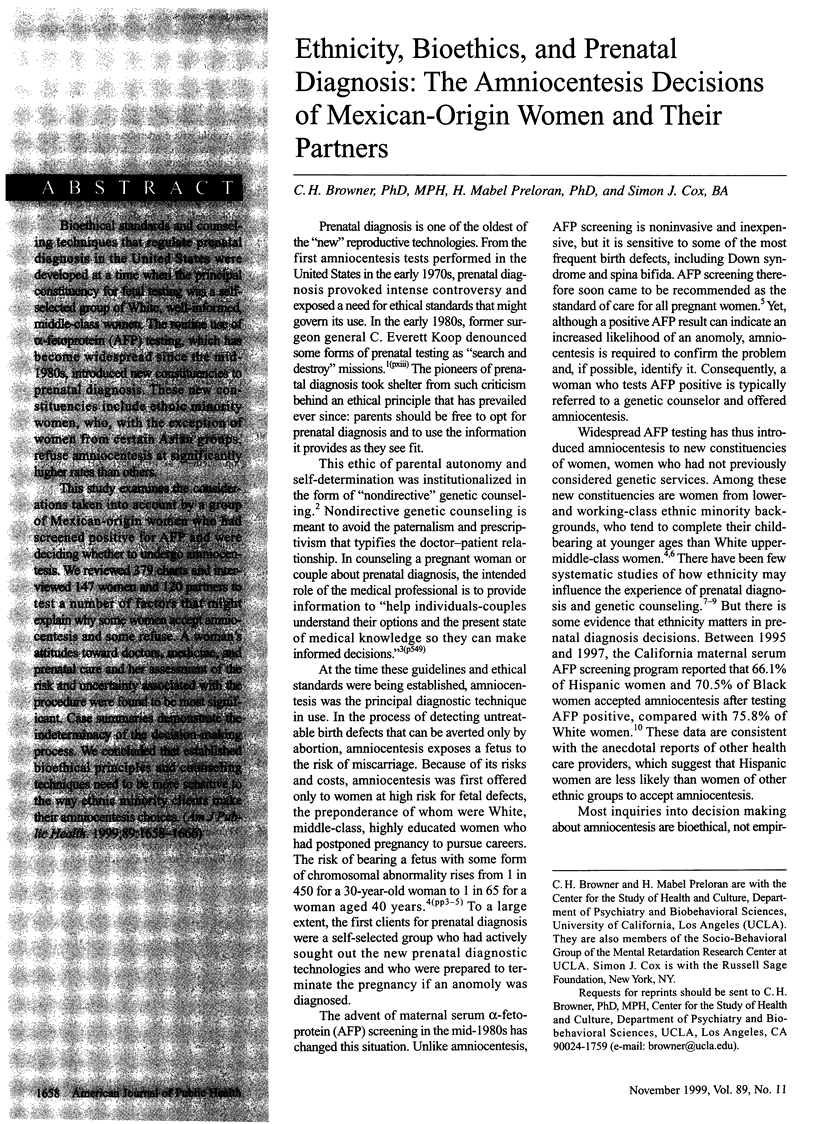
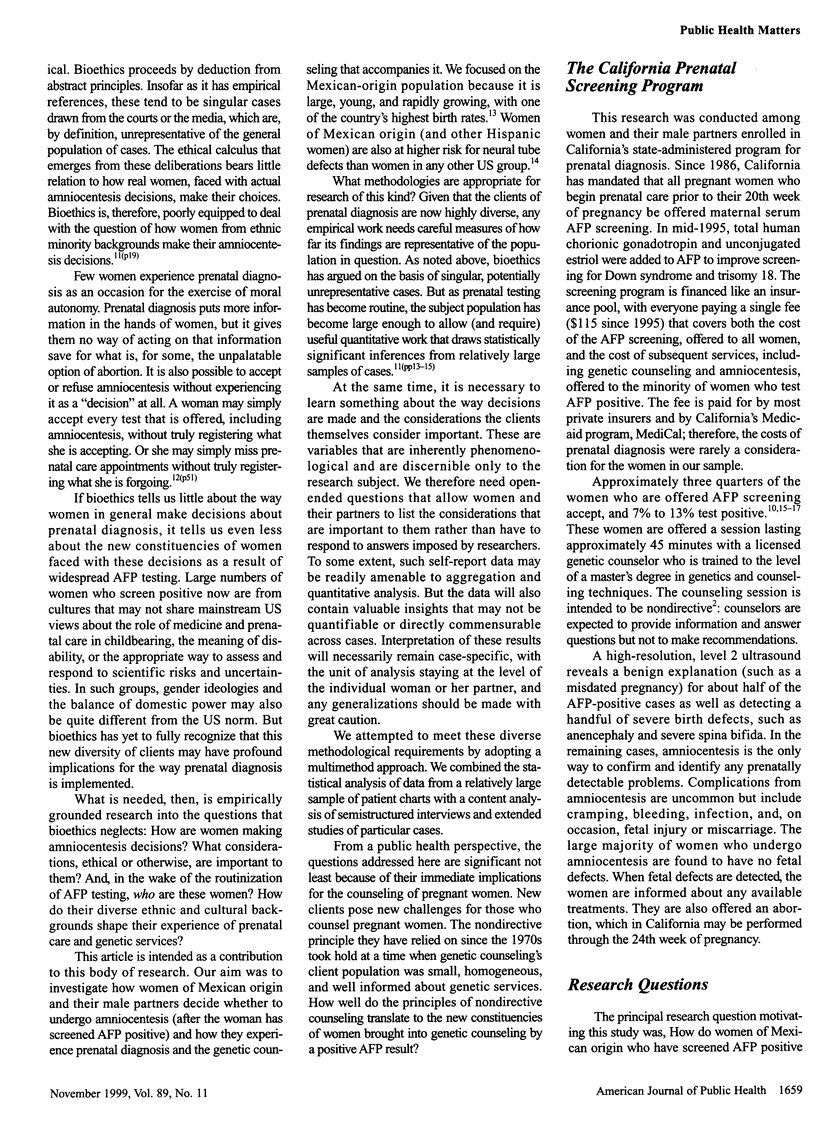
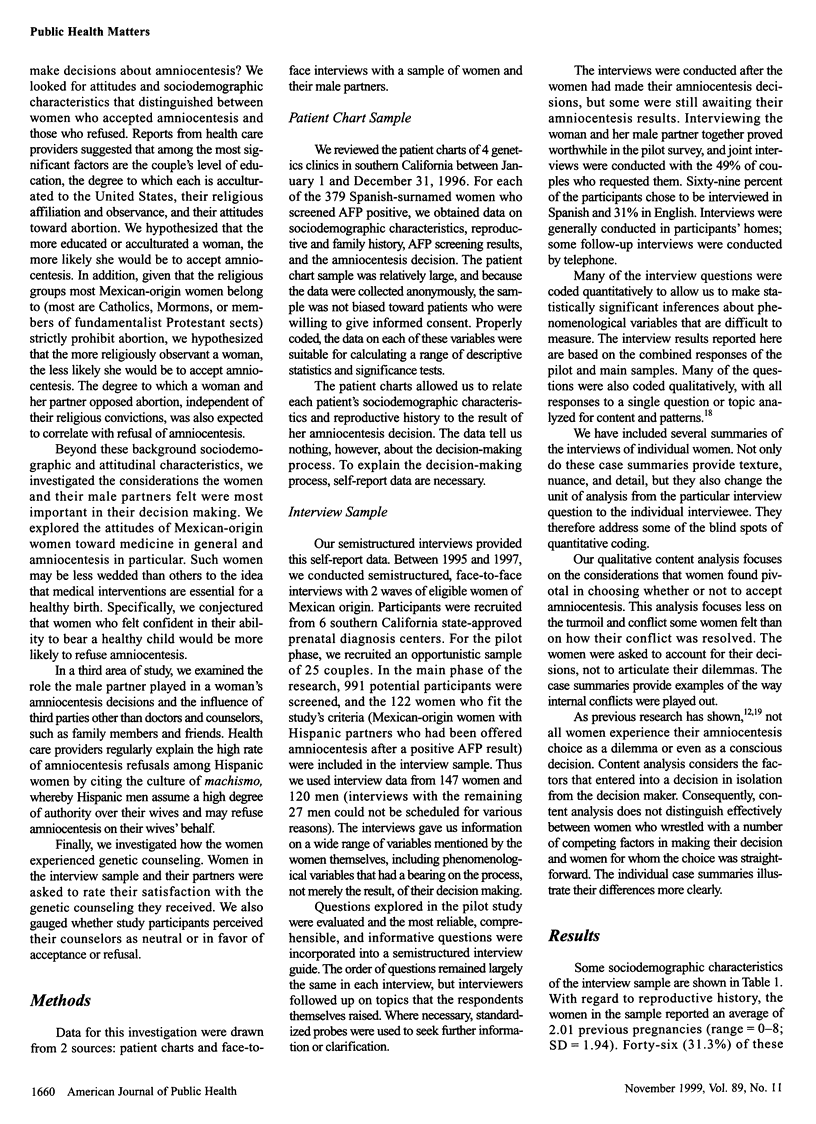
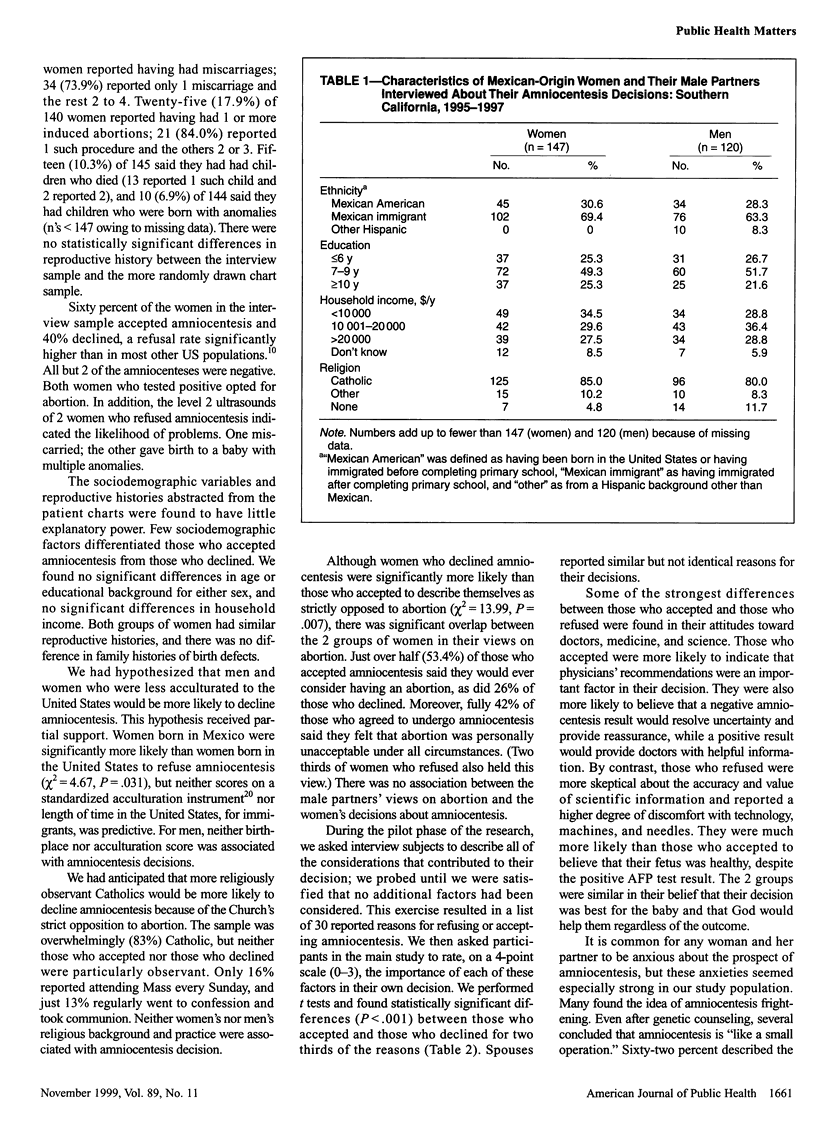
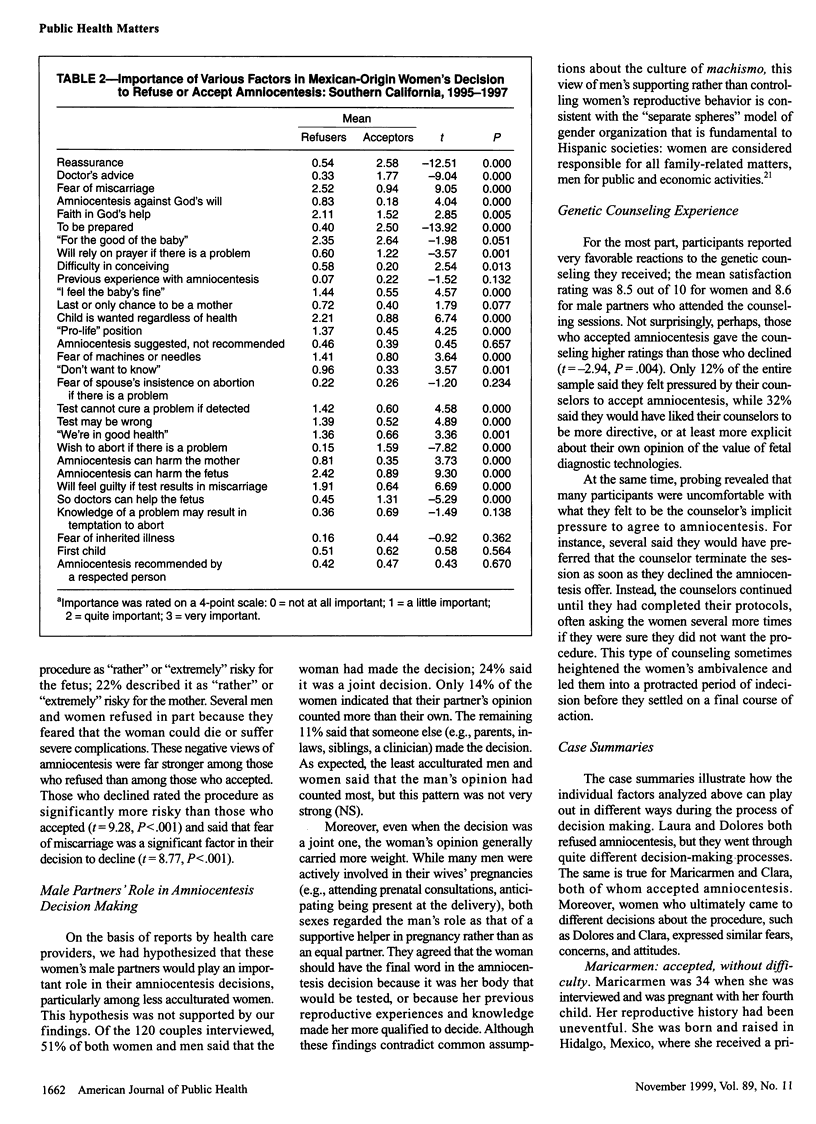
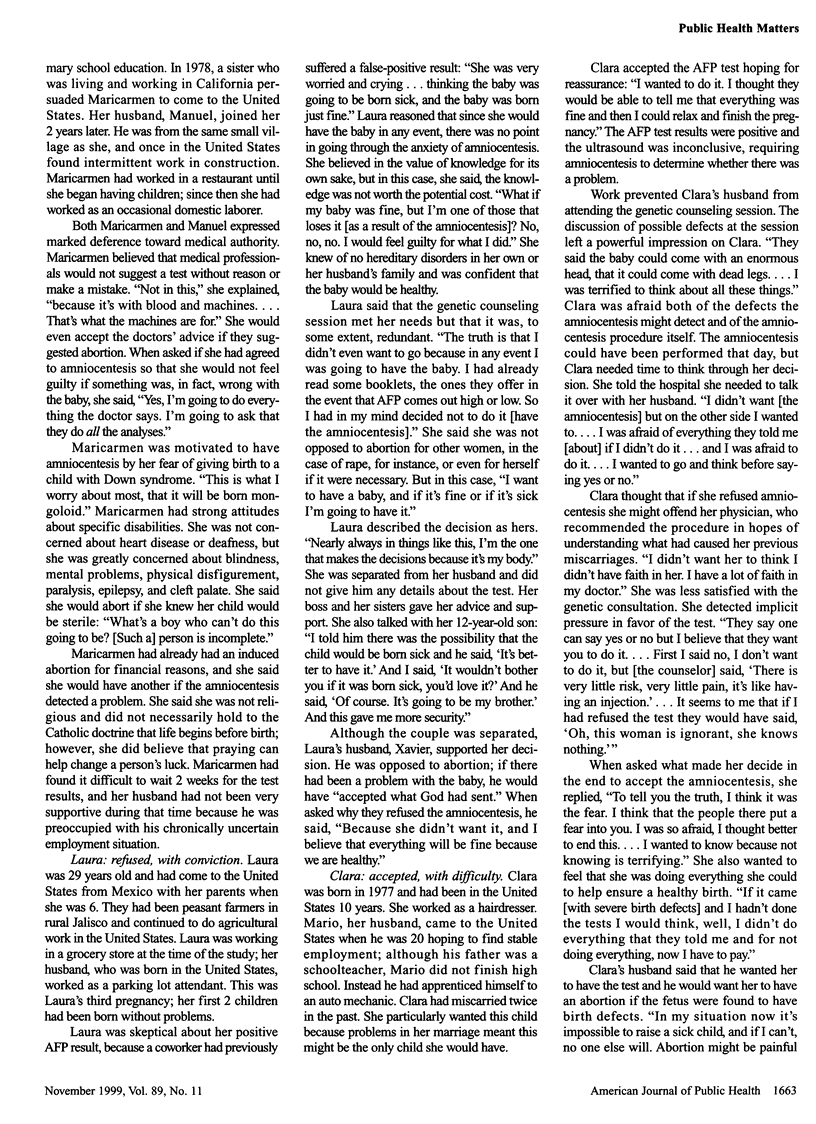
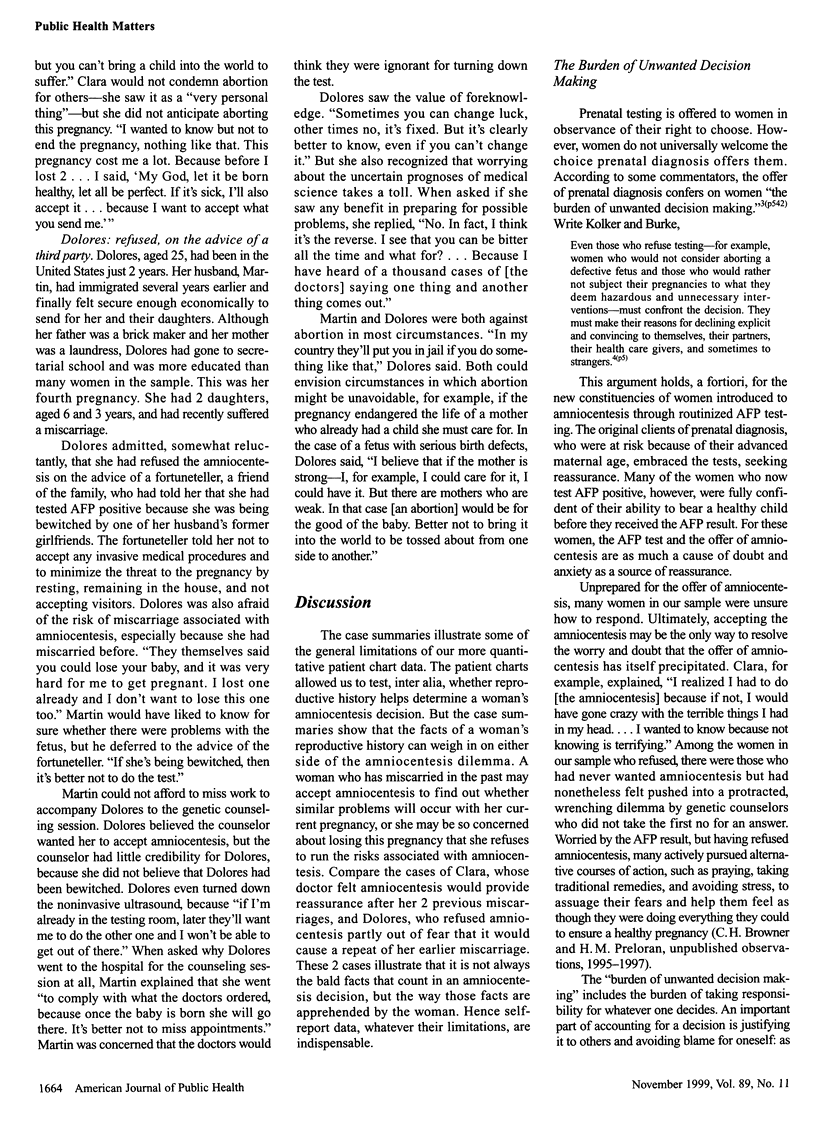
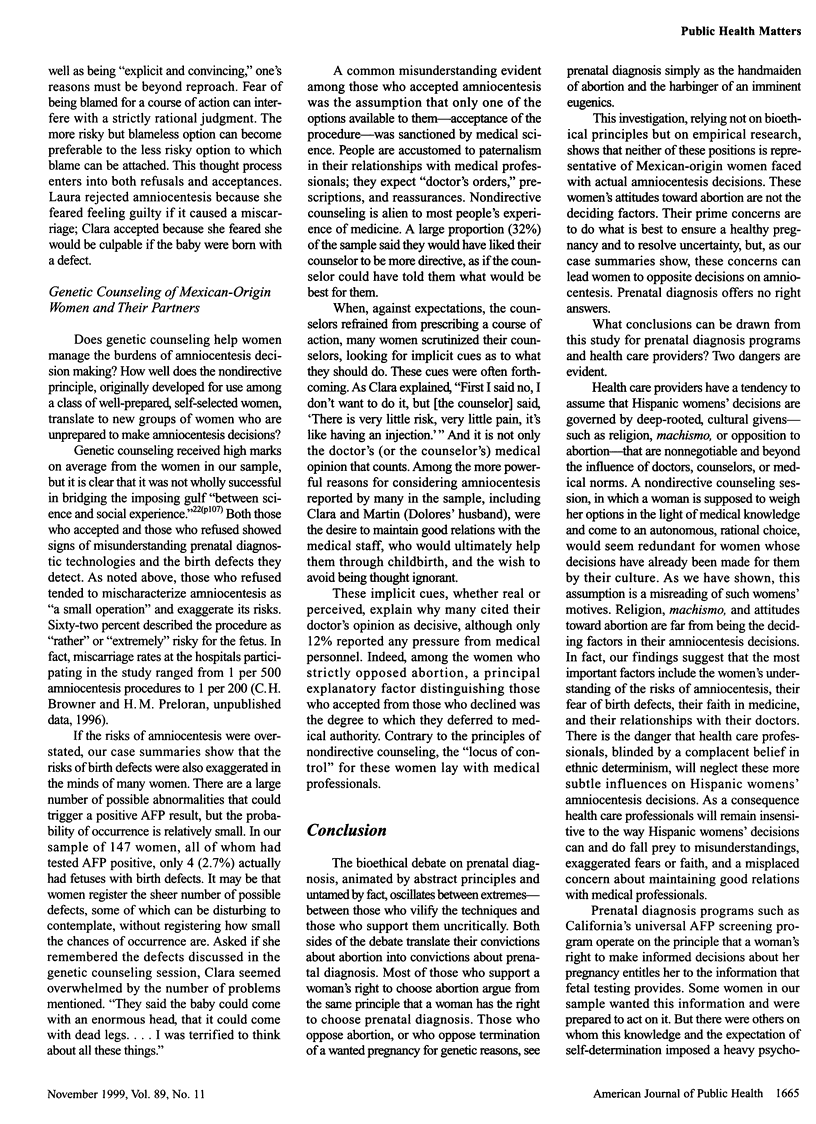
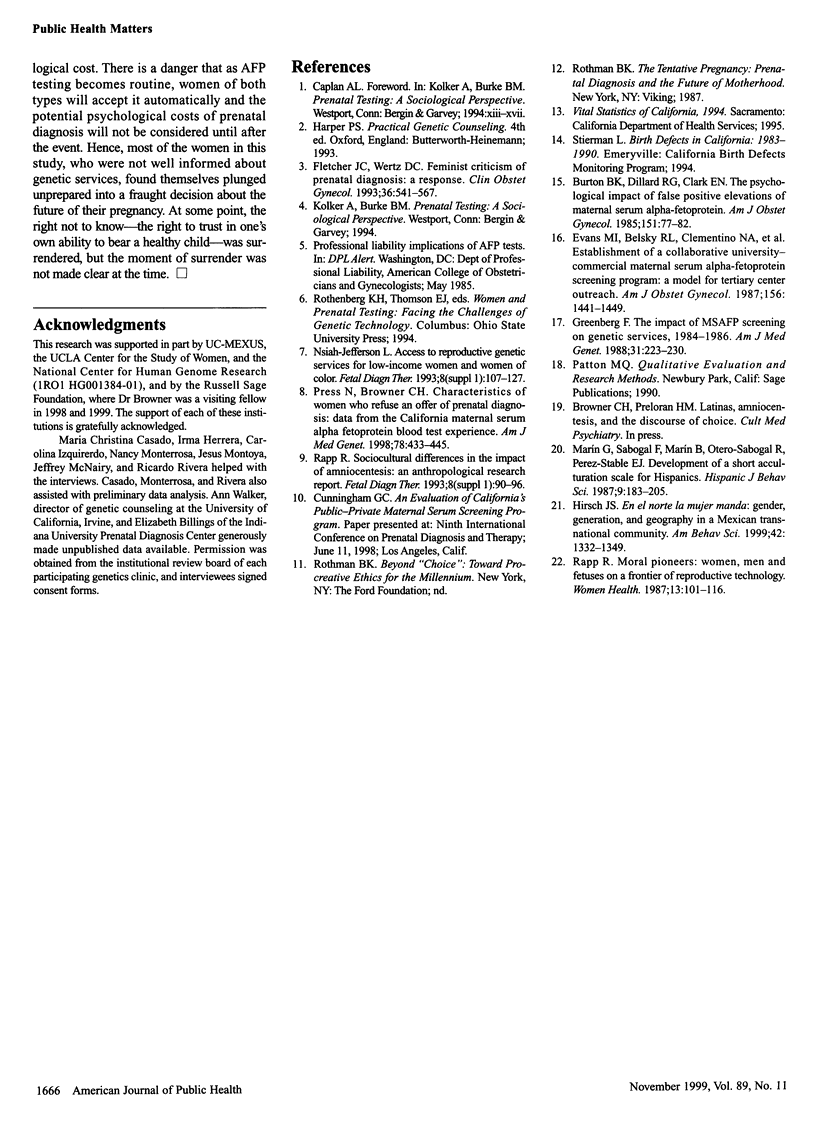
Selected References
These references are in PubMed. This may not be the complete list of references from this article.
- Burton B. K., Dillard R. G., Clark E. N. The psychological impact of false positive elevations of maternal serum alpha-fetoprotein. Am J Obstet Gynecol. 1985 Jan 1;151(1):77–82. doi: 10.1016/0002-9378(85)90428-4. [DOI] [PubMed] [Google Scholar]
- Evans M. I., Belsky R. L., Clementino N. A., Shlagor P., Brieger G., Koppitch F. C., 3rd, Syner F. N., Rodriguez S. E., Sokol R. J. Establishment of a collaborative university-commercial maternal serum alpha-fetoprotein screening program: a model for tertiary center outreach. Am J Obstet Gynecol. 1987 Jun;156(6):1441–1449. doi: 10.1016/0002-9378(87)90014-7. [DOI] [PubMed] [Google Scholar]
- Greenberg F. The impact of MSAFP screening on genetic services, 1984-1986. Am J Med Genet. 1988 Sep;31(1):223–230. doi: 10.1002/ajmg.1320310129. [DOI] [PubMed] [Google Scholar]
- Press N., Browner C. H. Characteristics of women who refuse an offer of prenatal diagnosis: data from the California maternal serum alpha fetoprotein blood test experience. Am J Med Genet. 1998 Aug 6;78(5):433–445. [PubMed] [Google Scholar]
- Rapp R. Moral pioneers: women, men and fetuses on a frontier of reproductive technology. Women Health. 1987;13(1-2):101–116. [PubMed] [Google Scholar]
- Rapp Rayna. Sociocultural differences in the impact of amniocentesis: an anthropological research report. Fetal Diagn Ther. 1993 Apr;8(Suppl 1):90–96. doi: 10.1159/000263877. [DOI] [PubMed] [Google Scholar]
- Wertz D. C., Fletcher J. C. Feminist criticism of prenatal diagnosis: a response. Clin Obstet Gynecol. 1993 Sep;36(3):541–567. doi: 10.1097/00003081-199309000-00012. [DOI] [PubMed] [Google Scholar]


